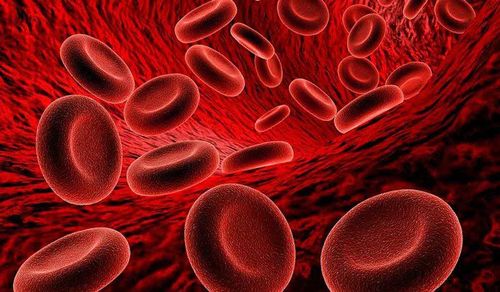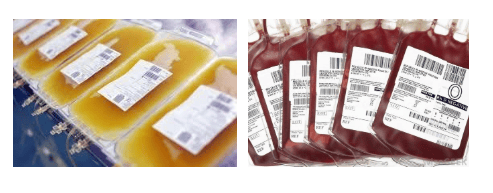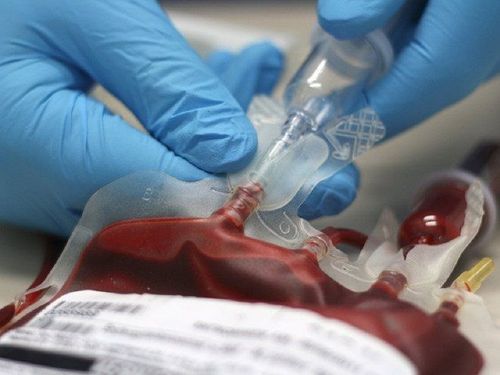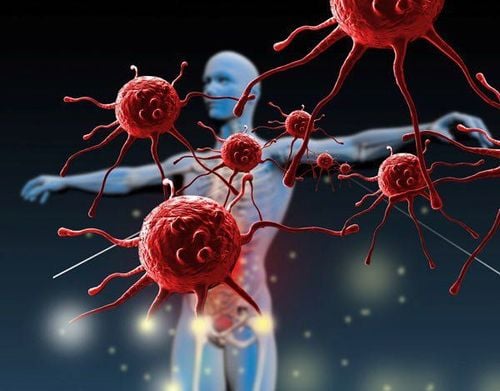This is an automatically translated article.
The article was written by a Doctor of Hematology - Blood Transfusion - Laboratory Department - Vinmec Ha Long International Hospital.Abnormal antibodies, which are IgG in nature, often cause extravascular hemolysis. Abnormal antibodies can also cause acute hemolysis if the patient has a secondary immune response (mother-infant incompatibility).
1. What is an abnormal antibody?
Abnormal antibodies of the red blood cell system are allogeneic antibodies, appearing only after an immune process when the patient's body (or the mother's) comes into direct contact with one or more antigens present on the surface of her red blood cells. blood donors (or their children), but these antigens are not present on the surface of their own red blood cells.Blood transfusion (TM) is a supportive therapy, but it is very necessary and important. TM is applied as adjunctive treatment to the main treatment methods in most specialties of the field. Medicine such as Obstetrics, Surgery, Internal Medicine, Emergency, Pediatrics and Oncology... Currently, when implementing new and advanced treatment methods such as organ transplantation, stem cell transplantation, surgery heart... also need blood transfusions and preparations during the course of treatment.
Blood transfusion can also cause serious complications for the patient if the regulations and procedures on safe blood transfusion (ATTM) are not strictly followed.
Currently, in developed countries, the work of ensuring ATM safety in terms of immunity has been carried out thoroughly and regularly with pre-transfusion tests including:
ABO, Rh and some blood grouping Other blood group system, Screening, identifying abnormal antibodies (KTBT), Immunocompatibility test at 220C, 37oC and using anti-human Globulin. ATM safety in terms of immunity in these countries has been ensured and blood transfusion accidents have been minimized.
In Vietnam, ensuring ATM safety in terms of immunity has been implemented, but not fully implemented in hospitals; Pre-IV tests are only performed:
Determination of ABO blood group, Rh system, immunocompatibility test at 220C 370C and using anti-human Globulin. Screening for abnormal antibodies is still not routine in many hospitals and is often done after immunocompatibility testing. In Obstetrics and Gynecology, TM plays an important role in supporting active resuscitation for both mother and baby, so identifying the presence of abnormal antibodies will help ensure ATM safety for both mother and baby. little.
For the mother, the appropriate blood will be available for supportive treatment,
For the fetus that can be identified: Donating hemolytic blood due to disagreement between mother and fetus.

Các kháng thể bất thường thường gây tan máu ngoài lòng mạch
2. When to have an abnormal antibody screening test
For blood donors, For people with a history of blood transfusion; For women with a history of pregnancy, childbirth, multiple miscarriages; If during the course of treatment, the patient needs blood transfusion many times, many days must repeat this test periodically no more than every 7 days. In case an abnormal antibody screening test is positive, an abnormal antibody identification test should be performed;3. Meaning of Abnormal Antibody Screening
3.1. Abnormal antibodies have clinical significance Clinical significance of abnormal antibodies is to reduce the life of the donor HC in the patient's blood vessels, causing hemolysis (increasing the concentration of indirect bilirubin and LDH in the patient's blood). . According to the comments of the author Denise (1999) and Garraty (2012): In the same blood group system, there are antibodies that are clinically meaningful, antibodies that have no clinical significance or only have clinical significance. when they operate at 370C. Abnormal antibodies to the HC system often appear in patients who have received multiple blood transfusions or in pregnant women who have given birth many times. IgG-based antibodies often cause extravascular hemolysis. Antibodies can also cause acute hemolysis if the patient has a secondary immune response (mother-child incompatibility) 3.2. Conditions for the patient's body to produce abnormal antibodies Incompatibility with blood group antigens of the red blood cells blood group between mother and child. The ability of antigens to stimulate antibody production Not all antigens can create an immune phenomenon with the same intensity, the immunogenicity of antigens of blood group and among antigens in the same system Blood groups are also different, the ability to form anti-D antibodies of the Rh system is the strongest (50%), then the anti-K antibodies of the Kell system (5%).The number of times, the distance and the amount of blood transfused to the patient The greater the number of transfusions that do not match the blood group antigen, the more time between transfusions for the body to produce antibodies, which are favorable factors for the body to create antibodies. In addition, the incidence of BBT increased with the number of blood transfusions, but the volume of blood transfused was not found to have a clear effect on the production of antibodies.
The degree of immune response in each individual Each individual has a different immune response to the same blood type antigen
![Bảng tính sinh miễn dịch của các kháng nguyên nhóm máu [35]](/static/uploads/medium_20210319_040204_547540_sang_loc_khang_the_max_1800x1800_png_d6b4cb9424.png)
Bảng tính sinh miễn dịch của các kháng nguyên nhóm máu [35]
It is difficult to select blood because of AHG stage polyagglutination.
In the practice of blood transfusion to ensure the safety of ATM in terms of immunity, the principle of blood transfusion must be ensured:
The life of both donor and recipient blood cells is normal in the blood vessels and does not agglutinate. by antibodies present in the recipient's or donor's serum, It is necessary to conduct tests to determine blood group, screen for antibodies before performing a concordance reaction to select the most compatible blood units between the donor and the donor. recipients of both ABO blood group systems and other HC blood group systems. If these rules are not respected, the recipient's immune system will recognize the donor antigen as foreign antigens and induce an immune response that produces antibodies against the antigen present on the surface. Donor red blood cells, those antibodies are called abnormal antibodies and will cause transfusion complications in subsequent transfusions.
For newborns, antibodies available in the mother's serum can also cause hemolytic jaundice in the newborn if there is a blood group incompatibility between mother and child.
There are 2 clinical types of neonatal immune hemolytic jaundice due to mother-infant disagreement:
Neonatal hemolytic anemia due to Rhesus incompatibility, Neonatal hemolytic anemia due to nongroup incompatibility Rhesus blood. If you need to consult and visit Vinmec Hospitals of the national health system, please book an appointment on the website (vinmec.com) for service.
Please dial HOTLINE for more information or register for an appointment HERE. Download MyVinmec app to make appointments faster and to manage your bookings easily.
REFERENCES1/ Vu Duc Binh (2017). Research on detecting abnormal antibodies by red blood cell panel of the National Institute of Hematology-Blood Transfusion to ensure effective blood transfusion.
Thesis of Doctor of Medicine. Hanoi Medical University.
2/ Bui Thi Mai An, Hoang Thi Thanh Nga, Nguyen Thi Thu Ha, Nguyen Anh Tri (2016), Research on antigenic characteristics of some blood group systems in phenotype blood donors at the National Institute of Hematology - Blood Transfusion Central Government, Vietnam Medical Journal, 446, 202-208.
3/ Hoang Thi Thanh Nga (2014), Research on abnormal antibodies to red blood cells and initial results of concordant blood transfusion of some blood group antigens in Thalassemia patients at the National Institute of Hematology and Blood Transfusion (2013) -2014), Master's thesis in medicine, Hanoi Medical University.
4/ Pham Quang Vinh (2006), ABO, Rh blood group systems, other systems and blood transfusion safety, Postgraduate Lecture on Hematology and Blood Transfusion, Medical Publishing House, 280-298.
5/ Circular 26/2013/TT-BYT, issued on September 16, 2013 guiding blood transfusion activities.
6/ Carel Jan van Oss, Letter to the Editor: "Natural" versus Regular Antibodies, The Protein Journal (2004).













